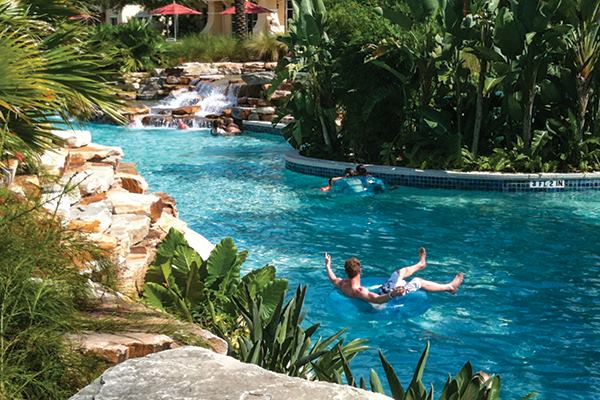Guests staying at Disney resorts near Orlando’s Walt Disney World are seeing some significant changes at feature pools this fall. As many in the aquatics industry are already aware, the heavy-use pools at 24 of their resorts and timeshares will now only be open when a lifeguard is on duty. Also, as part of regularly scheduled renovation efforts at each resort, fences are being constructed around pools that don’t already have them, and gates will be locked at night. The smaller “quiet pools,” however, will remain unaffected by these policy changes.
In March, a 13-year-old Missouri boy was involved in a water-related incident at Disney’s Pop Century Resort and passed away later at a local hospital. Lifeguards had been on duty until 8 p.m. that evening, and the incident occurred at 9:30 p.m. In April, a 4-year-old boy aboard a Disney Fantasy cruise ship suffered brain damage after nearly drowning in one of the ships three pools.
Large resort chains such as Disney may be able to afford an ample lifeguard staff, but smaller chains and independent hotels may not have that luxury.
With that in mind, facilities can post signs at the gate, at pool side and on the deck that instruct parents to be within arm’s reach of young swimmers, and for non-swimmers to wear lifejackets in the pool area. “Lifeguards are not there to babysit,” says Kim Burgess, Executive Director of the National Drowning Prevention Alliance. “It’s the responsibility of the parent to protect and keep their child safe.”
Burgess sites the recent drowning of a six-year-old boy on a Carnival cruise ship as an example of parental responsibility. Aquatic facilities can post prominent signs around pools, “However, the real responsibility belongs to the parent,” she reminds. “While reports say the parents were present, it was other people at the pool who saw the child in distress and pulled him out.”
Miami-based attorney Jim Walker argues that while many point the finger at parental responsibility, there is a responsibility on the part of the facility as well.
“A ‘no lifeguard on duty’ sign does not legally exonerate a cruise line, or a hotel, or an amusement park,” he states on his blog, Cruise Law News. “It simply raises the issue whether the sign was legally conspicuous enough to provide effective warning to parents.”
And while it’s impossible to guarantee a complete prevention of drowning, Disney is making a big step in closing the gap. “Disney is a world leader in caring for their guests,” says National Swimming Pool Foundation CEO Thomas Lachocki. “It is good to see that they continue to refine their policies and practices with safety in mind.”


